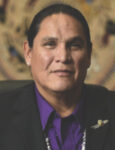
In these difficult and unprecedented times, few industries or businesses have proven themselves immune to the effects of recessionary activity. All parties in the “economic food chain” are experiencing pressure, and even those outperforming their competitors are reassessing their approach and positioning.
This is particularly true in many corners of Indian Country, where reduced cash flows at gaming properties are beginning to influence the financial position, both inside and outside of the casino walls. And when the economic engine of gaming starts to show significant declines in profitability, the community programs those dollars support may also be in jeopardy. Tribes recognize that the right response is needed. And quick.
If there is a silver lining, it just may be that because the current environment is so incredibly challenging, it is forcing tribes throughout the U.S. to closely evaluate (if not completely revisit) their business, marketing and construction/development plans-and “operational soul searching” of this intensity has a way of yielding some unexpected benefits. For the tribes who do it right, the changes they make now should not only help their tribal properties weather the current crisis, but will also result in more streamlined operations and effective business models that should help bolster profits for years to come.
Perspective
The gaming industry continues to be adversely affected by the economic downturn. In order to offer some perspective, let us look at the performance of the major gaming industry indices. As of March 6, the Dow Jones U.S. Gambling Index is down 18.2 percent for the year (following a decline of 73.3 percent in 2008). Relative to a 7 percent decrease in the S&P 500 over the same period, the data tells us that gaming is no longer a preferred sector for investors. Furthermore, shareholders in the world’s largest gaming operators-Las Vegas Sands, MGM Mirage and Wynn Resorts-have lost more than $70 billion of market value since the beginning of 2008.
From a credit perspective, the data is not any better. Within Fitch’s U.S. High Yield Default Index, the gaming sector experienced a record default rate of 32 percent in 2008, well above the overall high-yield market default rate of 8.5 percent. Seven issuers defaulted on more than $13 billion of high-yield principal. Twenty-one companies received credit rating downgrades from Moody’s, nine of which were Native American operators. To date in 2009, three Native American entities have been downgraded including Mohegan Tribal Gaming Authority, Mashantucket Western Pequot Tribe and Snoqualmie Entertainment Authority. Fortunately, the news is not all bad. While destination markets like Las Vegas and Atlantic City continue to generate record decreases in revenues, many regional gaming markets are benefiting from a lack of travel by gamers. For example, Mississippi and Louisiana have shown small decreases or even small gains as they have rebuilt after Hurricane Katrina’s devastation. Many new properties in these regions have improved their competitive position in comparison to their predecessors. Beyond commercial gaming, a handful of Native American properties in regional markets have improved their competitive positioning, notably the Seminole Tribe of Florida.
Impact on Tribal Enterprises
While much of this data may make many investors and operators nervous, it offers an opportunity for an in-depth review of the casino operations as well as the capital structure. With a solid framework in place, entities can preserve one of the most important aspects of business for many Native American operators: tribal distributions.
Cash flows provided by tribal gaming enterprises are of the utmost importance to tribal governments and act as lifelines for the majority of Native American tribes. Not only do these distributions fund tribal programs such as health care, education and infrastructure, but individual per capita payments also augment incomes for many tribal members.
Unlike a traditional corporate structure, Native American tribes operate in an interrelated environment whereby the casino operations cannot exist without tribal government, yet the tribal government is dependent upon the funds provided by the casino. Given this dynamic, the interests of the tribe and creditors are aligned. Both parties stand to benefit when the tribe operates the casino in a way that maximizes cash flow generation and profitability.
Commercial Mindset
Looking forward, it is our expectation that most, if not all, tribal entities will act commercially to preserve value for all of their stakeholders, including tribal members and creditors.
Even with limited refinancing options available due to the credit crisis, many tribes understand that they will need to tap the commercial credit markets at some point in the future to refinance their balance sheets and fund expansions or new projects. Additionally, tribes must recognize the potential impact on future generations from the decisions made in today’s difficult environment.
Give and Take on Both Sides
As noted earlier, the interests of tribes and creditors are often aligned. Both parties will need to approach discussions regarding tribal distributions in good faith, but may need to make concessions. Many debt agreements for Native American gaming enterprises permit guaranteed minimum distributions to fund essential governmental functions, even in the event of a default.
If during this difficult economic time, however, a situation arises where the gaming entity cannot make required interest payments, tribes may be forced to cut back on non-essential programs similar to state governments experiencing major budget deficits.
Ultimately, creditors need to permit distributions at a level where tribes can continue running their governments, otherwise, the tribe may have no reason to continue operating the very business that is expected to pay back its loans. Difficult decisions will need to be made, but they are necessary to align distribution expectations with the current economic environment.
How Are Tribes Responding?
Native American operators are responding by focusing on things they can control-announcing deep cost-cutting measures, reducing staff and delaying major development projects.
For example, Mohegan Tribal Gaming Authority announced in January a number of initiatives including reductions in salaries for senior executives, suspension of compensation increases, 401(k) contributions, and a reduction of hours of operation for some businesses. In September, the Mohegan Tribe also announced the delay of its $925 million expansion plan.
Long Overdue?
An interesting irony has emerged for tribal operators with regard to staffing levels. When tribes are positioning themselves for the development of a casino, the promise of job creation can be crucial to gaining political support and the approval of a state compact. Some even over-hired to prove their benefit to the local economy, creating inefficiencies and excessive payroll costs.
Although layoffs and downsizing are not welcome for anyone now, the current situation has forced tribes to deal with this issue and find a way to finally right-size their staffing levels. While it certainly is not the preferred method of addressing such a situation, tribal casinos are like every other business and have taken necessary measures to reduce such overhead costs and improve their profitability. Unwelcome, maybe. Overdue, definitely. These decisions may not be the best political moves both locally and within the tribal membership; however, these challenging times are requiring unpopular decisions.
Another positive development has surfaced out of the recession in the form of improved marketing programs. Whereas tribal operators may have had little need for highly targeted and perceptive marketing during the high-volume days of the recent past, creative and patron-sensitive tactics are now necessary for survival. Between reductions in staffing and enhanced marketing, tribal operators can improve operations and position themselves for a future recovery.
The Government Weighs In
The federal government is doing its part to assist tribes in their economic development. The American Recovery and Reinvestment Act of 2009 provides Native American tribes the authority to access up to $2 billion of tax-exempt bond funding to finance hotels and other non-gaming amenities using tax-exempt bonds.
In addition, the National Indian Gaming Commission recently issued a letter regarding the securitization of financings by a pledge of gross gaming revenues. The NIGC had questioned the validity of such financings, expressing concern that the documentation for such financing is void unless it has been approved by the NIGC chairman as a gaming management agreement. The letter did not object to securitization by gross gaming revenues and set forth a specific list of restricted creditor actions. Creditors are not permitted to engage in any “management activities” including supervision of personnel, determination of hours of operation, marketing, accounting, operation or purchase of gaming machines and allocation of operating expenses. By offering clarity on this issue, tribes and creditors now have a detailed operational guideline in the event that gaming revenues do not meet expectations. In summary, the NIGC has stepped forward with additional guidance that will be beneficial to both tribes and creditors in the future.
Time Will Tell
Despite the negativity and difficult economic environment, there is a silver lining for tribal gaming operators. The rationalization and right-sizing of cost structures will result in more efficient businesses and solid foundations for long-term success and profitability. A proactive mindset and foresight is crucial to weathering the storm and emerging unfazed.
The best operators are making informed decisions assisted by their financial and legal advisors. While no one truly knows how long the current recession will last, these businesses will be well-positioned to take advantage of more prosperous times.


















